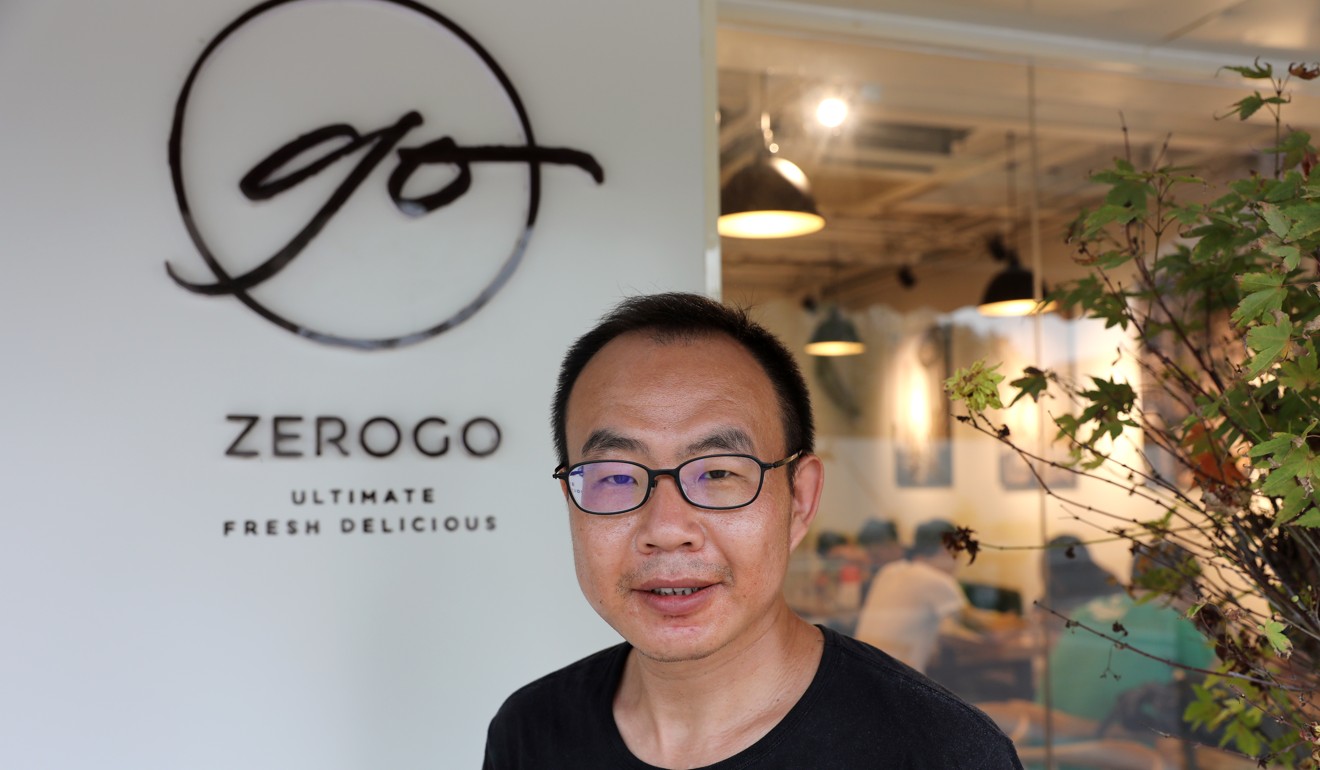
Apostles of veganism in China find a ready and growing audience for plant-based message
Vegan converts in Beijing and Shanghai are spreading the message through social media groups, film screenings, restaurant events and holding vegan challenges
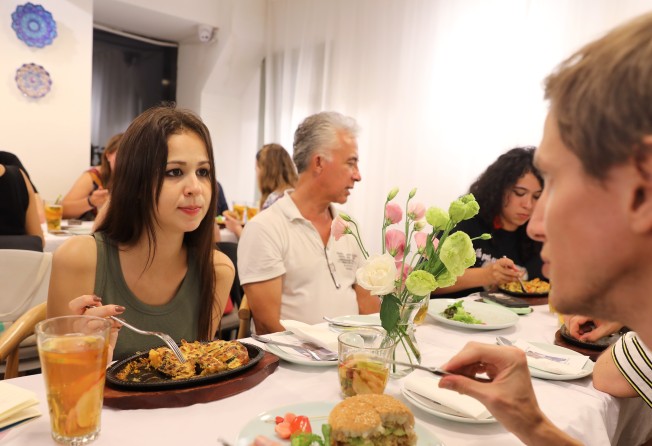
When Raymond Xie went vegan six years ago, he often felt hungry and ate lots of rice and noodles to fill his stomach. Instead of improving his health, his diet switch did not have any effect on his well-being.
“I didn’t have much knowledge about veganism then. As I stopped eating meat, I ate lots of oil as a replacement.”
A big foodie, he later started searching for tasty vegan recipes and researching the science of healthy eating. After tweaking his diet to include a greater range of legumes and vegetables, he lost 10kg in a year. He also recommended his vegan diet to his mother-in-law who suffers from diabetes.
“Chronic diseases can be caused by over-consumption of fat and cholesterol which come from milk and eggs. My mother-in-law needed insulin injections for eight years. Three months into her new vegan food regimen, her blood sugar levels dropped. She doesn’t even need the injections now,” Xie says.

Impressed by the vegan diet’s positive effects on health and eager to share it, he opened Zerogo Global Vegan Delicious last year in Wangjing in Beijing. The mostly fusion restaurant offers only vegan fare including salads, burgers, pizza, pasta, risotto and Asian rice noodles.
Zerogo is among the few restaurants in Beijing that specialise in vegan dishes. Others include Vegan Hut in Jianwai Soho which offers brown rice, spring rolls, vegetarian roast mutton and other Chinese dishes – all plant based.
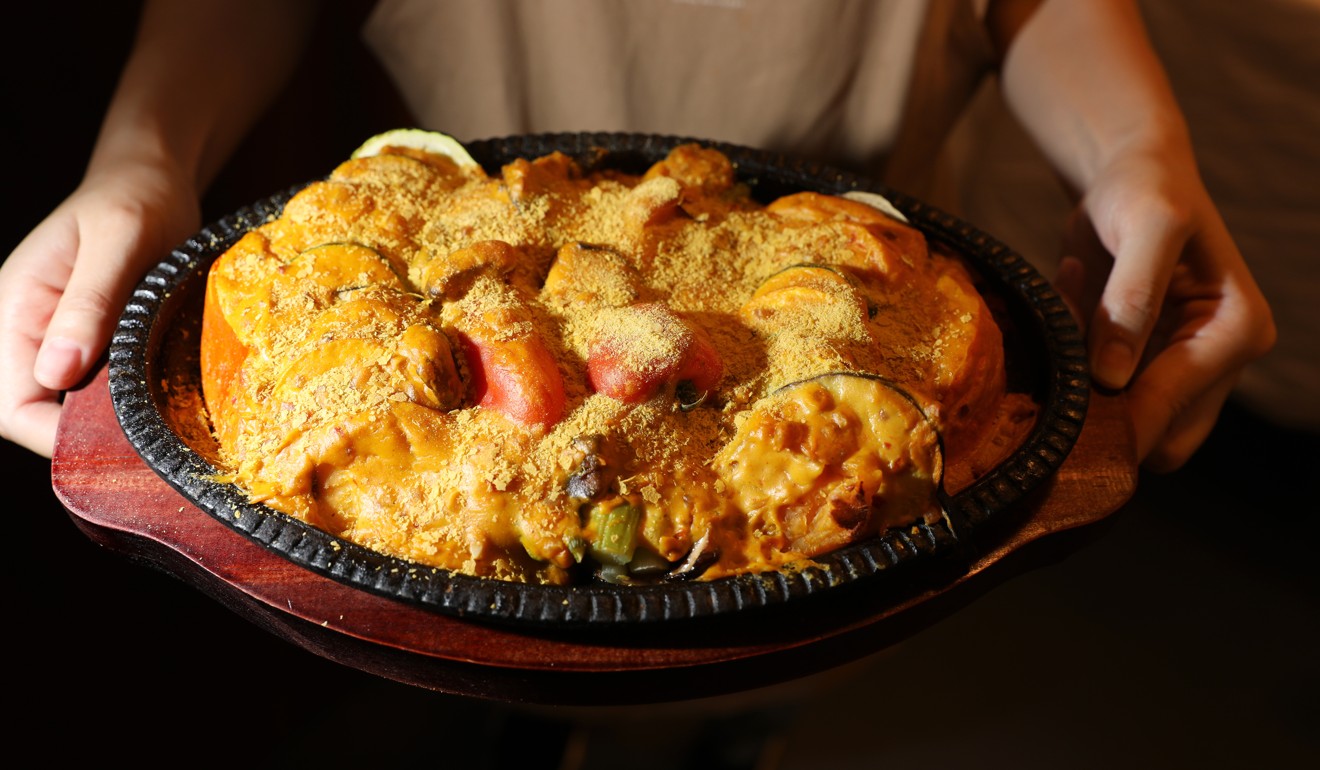
At a vegan dinner gathering at Zerogo, about two dozen people enjoyed a three-course meal including asparagus soup, chilled beetroot soup and a roasted vegetable platter prepared by Xie and his staff, after months of research and development.
“Instead of using milk, we developed our own plant-based cheese [produced by soaking and grinding nuts]. Our desserts [including mango and chocolate cake] are much healthier than ordinary desserts as they don’t contain any sugar, butter or milk. We use mango, papaya, coconut milk, cashew and lemon which are good ingredients with lots of nutrients.”
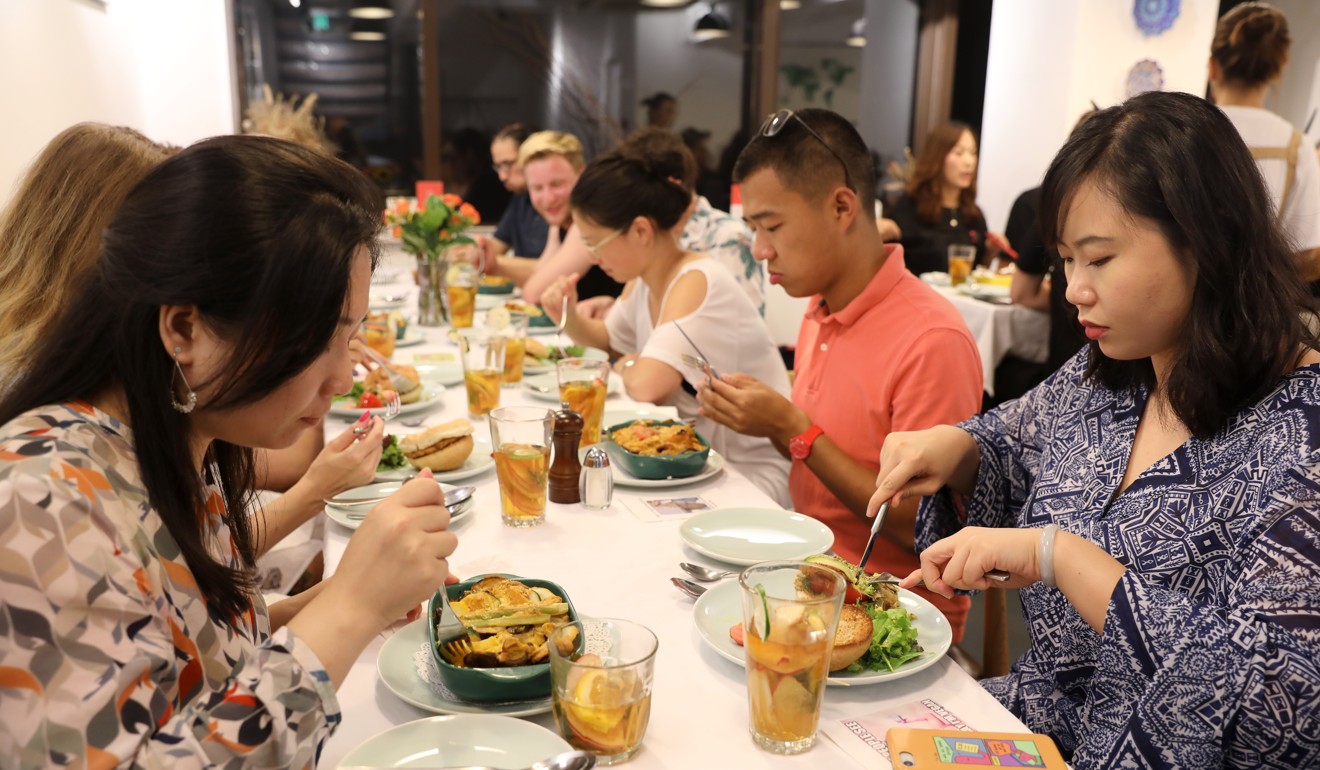
Xie opened the restaurant to show that healthy food can be delicious, too.
“I have talked to many girls who told me they like to eat salad to keep fit. But they also said they dislike eating cold greens every day. But a vegan diet can actually have a lot of diversity, and mix and match with low fat and carbohydrates.”
Zerogo’s menu also has a range of hot offerings such as Vietnamese spring rolls, Malaysian nonya laksa, and Thai tom yam soup. An organic farm in Beijing supplies many of its vegetables, while other key ingredients such as chickpeas and quinoa are imported from the Middle East and South America.
His compassion for animals originally prompted him to go vegan and promote veganism in Beijing.
“The fish live well, until you eat them. On an excursion to a pasture, I witnessed a sheep’s slaughter – just because we want to eat roast mutton. I feel bad when lives are sacrificed because of me.”
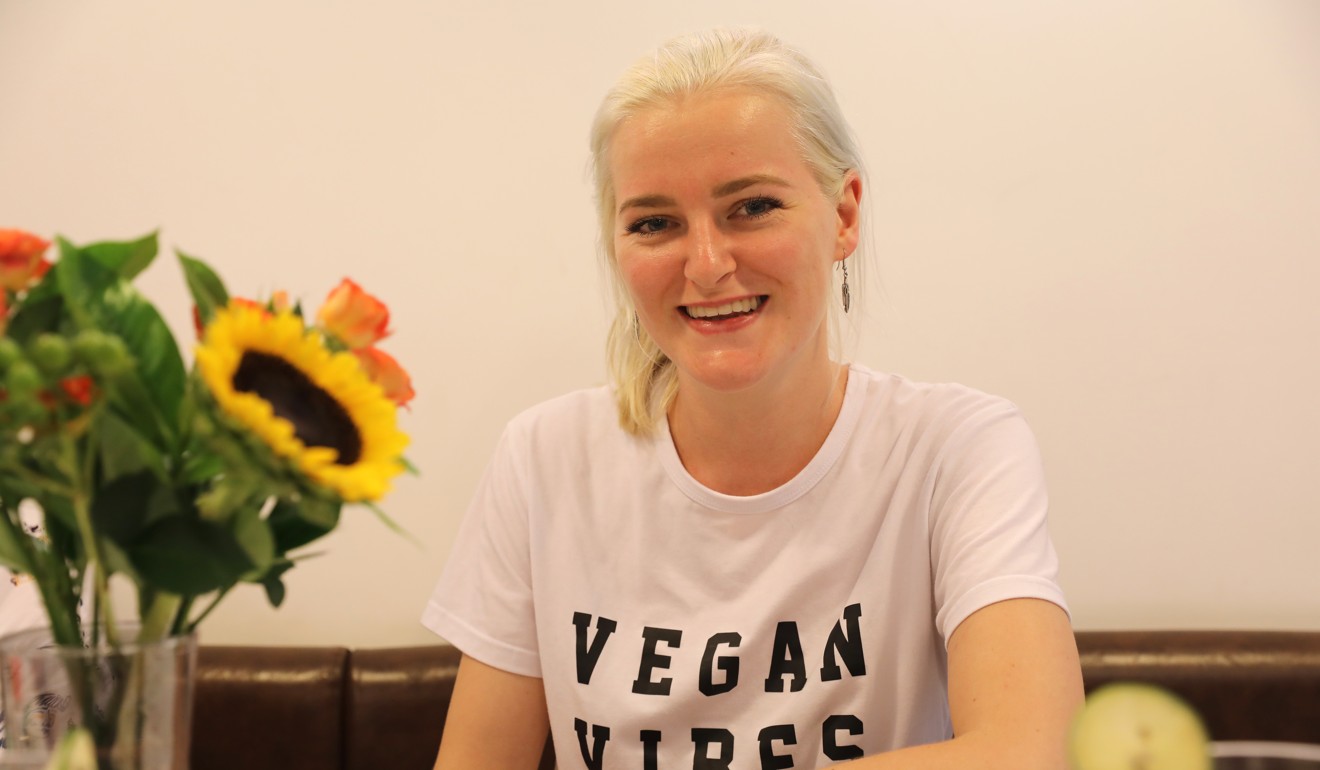
Another animal-lover who keeps three cats, Sarah Lovatt from England, launched a drive in Beijing in 2016 with her fellow vegan friends to persuade restaurants to include vegan offerings on their menus. The education graduate from Beijing Normal University says the drive has signed up around 30 restaurants so far.
“When I was a kid, my grandfather had a farm which had a lot of sheep. Every spring when the lambs were born, we went to see them, held them, and fed them milk like babies. Later we would eat them. Then I started learning more about where my food comes from, and [the unsavoury things] about the dairy industry. I decided that I couldn’t eat meat any more and slowly transitioned into veganism.”
Lovatt added the vegan advocacy outfit has a WeChat group with almost 500 people who are vegan followers or interested in going vegan.
“Our team also organises events like film screenings and vegan dinners. We let people know what kinds of vegan products are available in the city. If you’re living in the West, it’s pretty easy to be vegan. But it’s not the case in China as a lot of [Chinese] don’t really know what it is to be vegan and they also don’t know the difference between veganism and vegetarianism.”
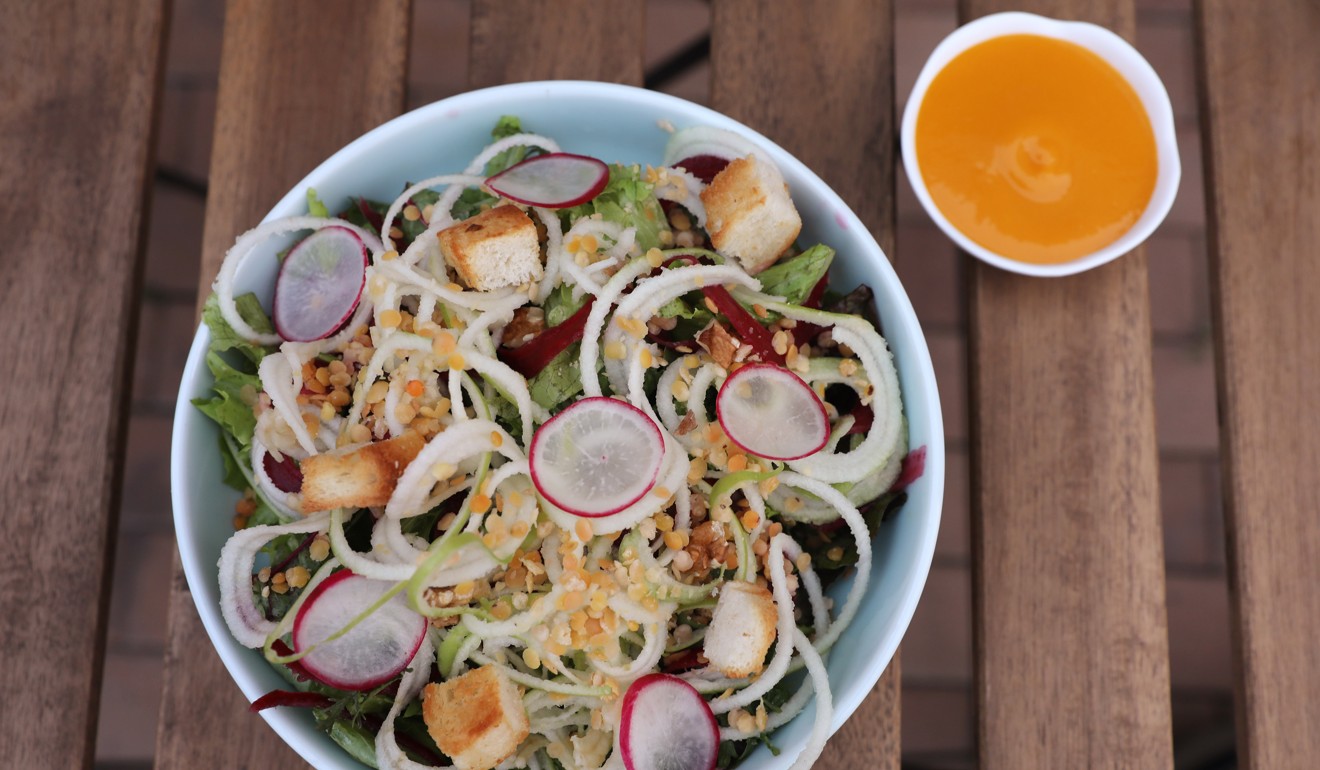
One of the group’s recent film screenings was of the documentary What the Health, and attracted dozens of people. Directed by Kip Anderson who became an environmental activist after watching An Inconvenient Truth, the acclaimed documentary written by failed US presidential candidate Al Gore, What the Health sheds light on the underside of the meat and dairy industries.
The documentary also interviewed several vegan followers who share how their change in diet improved their health and physique.
Lovatt says vegan followers get plenty of protein from multiple sources including soybeans, lentils and chickpeas.
“I used to have problems with my digestive system. But it cleared up after I stopped eating dairy. I know a lot of people who suffered from acne and eczema problems their whole lives, then stopped having the skin conditions when they went vegan,” she says.
“I also feel energetic. In the past, I sometimes felt very tired after eating. But I don’t feel that any more.”
The vegan movement is also getting more popular in Shanghai. Set up two years ago, Vegans of Shanghai, an advocacy group for veganism, has around 750 members now. Its administrator Chaniece Brackeen said they held a two-week vegan challenge – Vegan Step – in Shanghai in August which signed up 1,200 people.
“Participants had to stick to a plant-based diet for two weeks. They shared what they ate every day for two weeks. They posted photos of their food and recipes. There were two winners in the challenge who posted the best photos and the best recipe for a Chinese vegan pork steamed bun using ingredients including avocado oil, monkey head mushroom, tofu, Chinese yam, spring onions and red onions.”
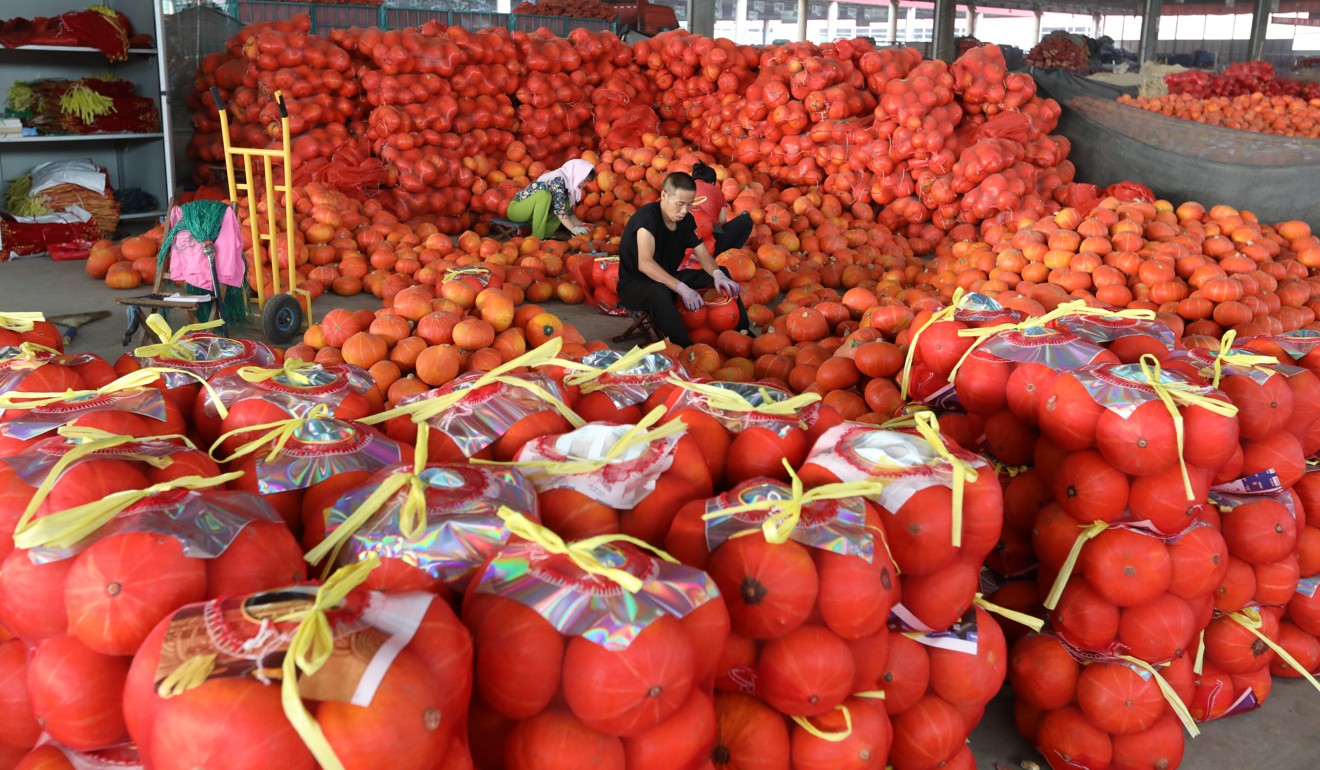
Brackeen says they have just set up Plant-based Consulting which helps restaurants in Shanghai take steps to offer more vegan options on their menus.
“There are many Chinese [Buddhist] restaurants [in China] which are vegan by default as they don’t use milk and eggs. But besides those Buddhist restaurants, there are few vegan restaurants in Shanghai. One of the few exceptions is Happy Buddha in Weihai Road, which is a purely vegan Western restaurant. Our consulting group wants to help spread veganism in China.”